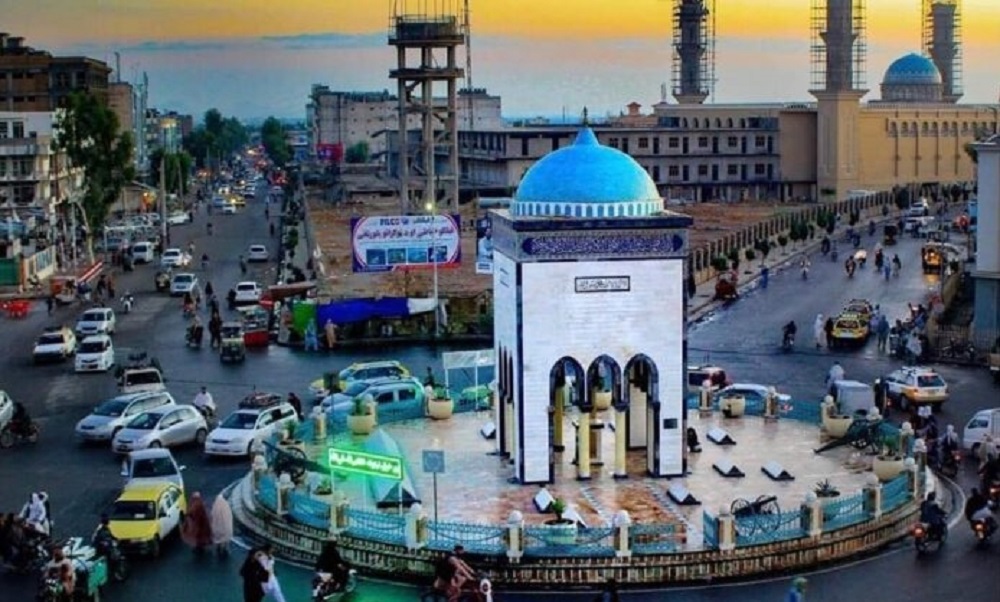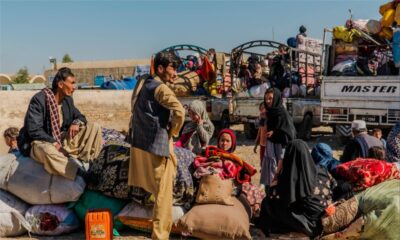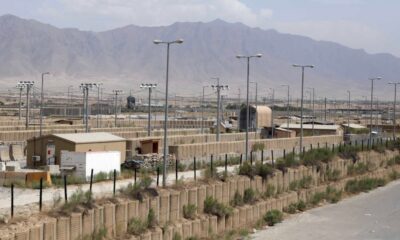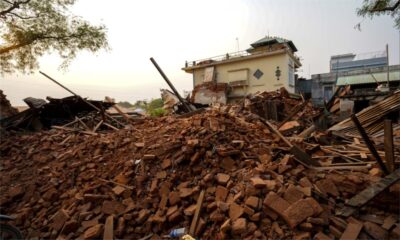Latest News
US Asked to Link Afghanistan Aid to Recognition of Durand Line

 The United States needs to condition its aid to Afghanistan on the recognition of the Durand Line, a U.S. lawmaker told a House Subcommittee on Foreign Affairs.
The United States needs to condition its aid to Afghanistan on the recognition of the Durand Line, a U.S. lawmaker told a House Subcommittee on Foreign Affairs.
The U.S. lawmaker, California Democrat Brad Sherman said that the Afghan government needs to recognize the 2,430km line between Pakistan and Afghanistan in order to achieve desired negotiations from Pakistan.
“The Durand line between Afghanistan and Pakistan has not been recognised by the Afghan government and we ought to condition our aid to Afghanistan on the recognition of that line. The fact is that as long as Afghanistan leaves open the idea that they are claiming Pakistani territory it’s going to be very hard to get the Pakistanis involved as we need them involved in controlling the Taliban,” Sherman said.
Sherman proposed conditioning US aid to Kabul while outlining his views on Pakistan’s interests in Afghanistan and its fears of a growing Indian influence in that country. “The Durand line — the border between Afghanistan and Pakistan — has not been recognized by the Afghan government,” he said.
“I realize that’s tough. They’ll say, oh, don’t — but the fact is, as long as Afghanistan leaves open the idea that they’re claiming Pakistani territory, it’s going to be very hard to get the Pakistanis involved, as we need them involved, in controlling the Afghan Taliban,” he explained.
The Durand Line, established in 1896, is the internationally recognized border between Pakistan and Afghanistan. But it remains largely unrecognized in Afghanistan with India often supporting Afghanistan.

Latest News
Donor community meet in Turkey to ‘plan and coordinate’ aid to Afghanistan
In 2024, humanitarian and basic human needs partners raised a collective US$3.21 billion in support of the Afghan people, exceeding funding levels of the previous year.

The Turkish Embassy in Kabul has confirmed that a two-day Afghanistan Coordination Group (ACG) Meeting is being held in Istanbul where the international donor community will look at priorities and plans around the situation in Afghanistan.
In a post on X, the embassy said the meeting would be held on Wednesday and Thursday and that it was important for the donor community to coordinate activities.
This comes just two days after the United Nations in Afghanistan (UNAMA) called on the international donor community to maintain critical support for the Afghan people, 22.9 million of whom are in need of assistance in 2025.
“If we want to help the Afghan people escape the vicious cycle of poverty and suffering, we must continue to have the means to address urgent needs while simultaneously laying the groundwork for long-term resilience and stability,” said Indrika Ratwatte, the UN’s Resident and Humanitarian Coordinator and Deputy Special Representative of the Secretary-General in Afghanistan.
“Despite complex challenges in delivering assistance to the Afghan people, we must continue to make the gradual transition from life-saving assistance to sustainable solutions that address the root causes of vulnerability. This is critical for Afghanistan, the region, and the world.”
In 2024, humanitarian and basic human needs partners raised a collective US$3.21 billion in support of the Afghan people, exceeding funding levels of the previous year.
Latest News
US House panel approves bill to prevent aid falling into IEA’s hands

The US House Foreign Affairs Committee voted on Wednesday in favor of a bill to prevent American aid falling into the hands of the Islamic Emirate of Afghanistan (IEA).
This issue has been a key focus for House Republicans since last Congress when lawmakers were made aware that weekly cash shipments of $40 million were being sent to Afghanistan’s IEA-controlled central bank.
Additionally, the Special Inspector General for Afghanistan Reconstruction reported in May 2024 that more than $10 million had been paid to the IEA in the form of taxes since they regained power in Afghanistan in August 2021.
“The United States has sent over $5 billion in cash to Kabul,” said Rep. Tim Burchett who sponsored the bill. “This money has been taxed and stolen by the Taliban (IEA), yet we continue to send it oddly enough. That definitely needs to end. The State Department needs to ensure that that any aid, whether financial or material, does not go to terrorists in Afghanistan. We need to have a clear understanding of the influence the Taliban has on, not just international aid, but the Afghan banking system as well.”
House Foreign Affairs Committee Chairman Brian Mast said: “This bill requires the Department of State to develop and implement a strategy to discourage foreign countries and non-government organizations, NGOs, from providing financial and material support to the Taliban (IEA). That’s important for the United States of America. We don’t have an embassy there. We don’t have diplomatic relations with the Taliban (IEA) – they are a terrorist organization.”
He added: “This includes by using U.S.-provided foreign assistance to discourage countries and organizations from providing support to the Taliban (IEA). We don’t want American tax dollars, in any way, shape or form, going to the Taliban (IEA).”
The bill, which has 23 co-sponsors, advanced to the House floor.
The Islamic Emirate has previously rejected claims of interference in international assistance to Afghanistan.
Latest News
Blast at Kandahar police HQ leaves several injured

An explosion occurred at police headquarters in Afghanistan’s southern Kandahar province on Thursday morning, injuring several guards, local officials said.
Asadullah Jamshid, spokesman for Kandahar police, said on X that the blast was triggered by container-loaded old ammunitions belonging to the counter-narcotics department.
He said that several guards were injured and windows of several rooms were broken as a result of the explosion.
Jamshid said security forces and firefighters rushed to the scene to prevent further explosions.
-

 Latest News4 days ago
Latest News4 days agoUN rights experts call on Pakistan to stop removal process of Afghan refugees
-

 Science & Technology4 days ago
Science & Technology4 days agoMeta releases new AI model Llama 4
-

 Latest News3 days ago
Latest News3 days agoIEA rejects reports of US military planes landing at Afghanistan’s Bagram Air Base
-

 Latest News5 days ago
Latest News5 days agoPakistan urges global community to block arms flow to militant groups in Afghanistan
-

 Sport4 days ago
Sport4 days agoAfghanistan Under-19s beat Nepal by 1 run in second ODI, win series
-

 World4 days ago
World4 days agoAnti-Trump protesters gather in Washington, other US cities
-

 Regional4 days ago
Regional4 days agoRains add to challenge for Myanmar quake relief, toll at 3,471
-

 Latest News3 days ago
Latest News3 days agoTrump’s tariff pressure on Afghanistan ‘will impact economic growth’
















